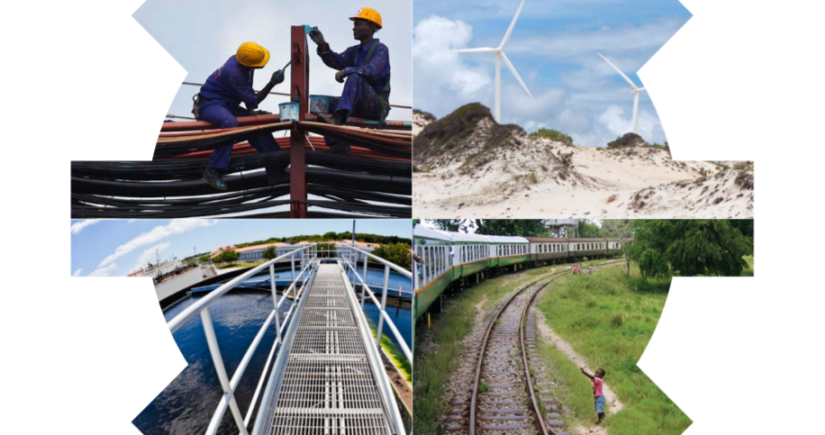In November CoST participated in Africa’s first roundtable on infrastructure governance in South Africa, which brought together 27 African governments, industry, multilaterals and development partners to focus on how Africa’s infrastructure deficit can be filled through better infrastructure planning and governance.
 The event was the first in a series of roundtables being delivered by the World Bank and partners and this first roundtable was hosted by the Development Bank of South Africa. The series stems from a growing recognition of the importance of infrastructure investment to economic development and an understanding of the huge financial loss the sector suffers to corruption.
The event was the first in a series of roundtables being delivered by the World Bank and partners and this first roundtable was hosted by the Development Bank of South Africa. The series stems from a growing recognition of the importance of infrastructure investment to economic development and an understanding of the huge financial loss the sector suffers to corruption.
Recent studies indicate that approximately 10-30% of investment in publicly-funded construction projects is lost through mismanagement and corruption. In real terms, this means that if current trends continue, close to US$ 1 trillion will be lost annually over the next decade.
The full benefits of a transparent and accountable environment
During a roundtable session entitled, ‘Making sure it’s done with integrity’ Chair of the CoST Board, Mr Chrik Poortman stressed the importance of addressing corruption in infrastructure in respect of economic growth. Furthermore, by creating an environment of accountability and transparency as CoST does, lives, systems and trust between policy makers, private industry and citizens can be bettered. CoST has seen such positive results in the 15 countries it has operated in, five of which are in sub-Saharan Africa.
“Furthering integrity and efficiency has allowed members of CoST to see both institutional and project-related progress,” said Mr Poortman. Giving examples of progress in these two distinct areas, he continued, “Government procurement policies have been strengthened to focus on higher levels of competition and greater scrutiny in awarding contracts. And there have been significant cost savings in project redesign and in some cases, the cancellation of excessively expensive, inappropriately designed and low-quality project proposals.”
In Malawi, CoST Malawi identified a 262% – more than a US$7.4 million cost increase on the rehabilitation of the country’s Nkhotakota-Msulira Road. The contract was subsequently cancelled. Similarly, in Ethiopia, CoST Ethiopia highlighted that original plans for a road in Eastern Ethiopia exaggerated the volume of retaining wall and excavation required. An alternative design was adopted leading to a cost saving of US$3.5 million – the equivalent to the cost of building a two-block school.
Why the CoST approach?
CoST places emphasis on core features which result in accountability and include: disclosure, assurance and multi-stakeholder working. This approach was commended by Hartwig Schafer, Vice President for Global Themes at the World Bank during the roundtable, who also highlighted the importance of CoST and other initiatives in the event’s opening session.
To conclude his presentation, Mr Poortman explained just why this approach is successful – promoting accountability essentially ensures the longevity of infrastructure transparency as knock-on benefits are felt across the main stakeholders involved they are then encouraged to support the process and one another.
- For governments – the benefits result in greater efficiency of public spending, enhanced reputation and public confidence and reduced risk to public safety resulting from poor building practices.
- For the private sector – advantages include improvements in the investment climate, a level playing field providing fair competition, a predictable business environment creating trust and confidence, and risk reduction resulting in improved access to financial markets.
- For civil society – greater transparency and accountability provides citizenship participation in critical project decisions, better value for money from public resources, improved service delivery, and more effective checks and balances to mitigate corruption.
The roundtable in South Africa was the first in the World Bank’s regional roundtable series, the second will take place this year in Côte d’Ivoire. CoST looks forward to continuing to further its message and experience of what works to help fill the infrastructure deficit in the region and elsewhere and to ensure the full benefits of transparency and accountability are realised.
Useful links
For more examples of the CoST impact download our Success Stories.
For further information on the roundtable series click here.
